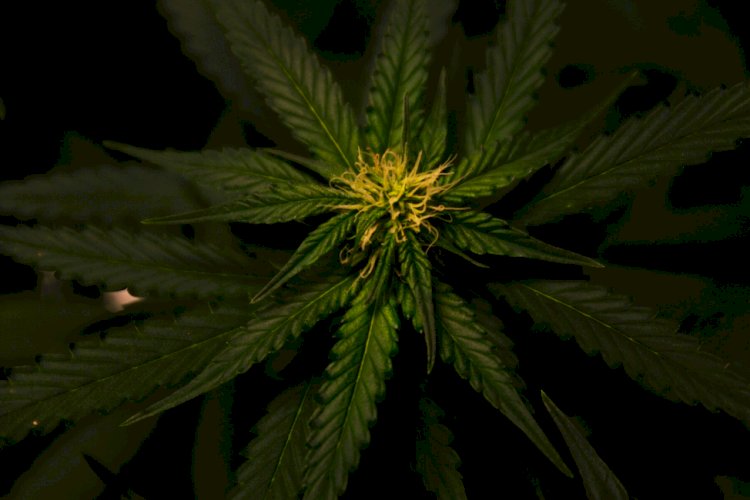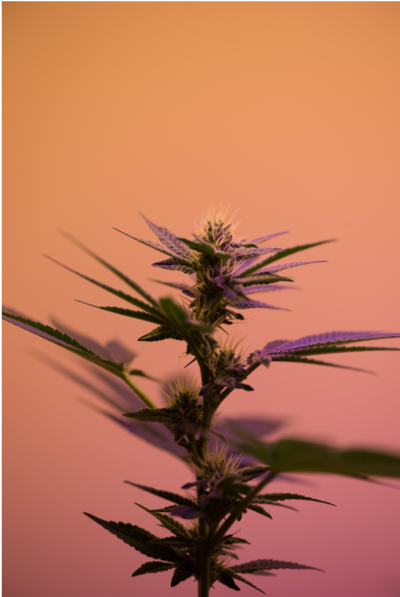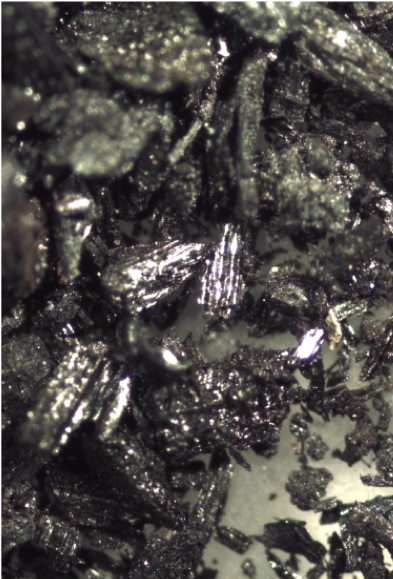Biochar in Cannabis Productions
Biochar in cannabis production can have many uses. Amongst those, biochar can be used as a substrate in potting soils for cannabis cultivation, as a replacement for air and water filtration and also as energy.

By Melissa Leung, GECA Environnement
Biochar, the carbon-rich material left after biomass pyrolysis, can become quite useful in horticultural settings when chosen and used properly. In the cannabis industry, growers are continuously looking for products to increase productivity and quality, and we think biochar could fulfill certain needs. The following is a short abstract on the usages and effects of biochar for cannabis production, both in and out of soil.
Advantages of using biochar in potting soils for cannabis production
Potting mix for cannabis may contain several of the following: peat, earthworm casting, vermiculite, perlite, coco coir, compost, meal, mycorrhizae, and so on. Some cannabis growers already use biochar in their potting mix with excellent results. To obtain such results, the biochar has to be carefully selected based on well-defined properties.
Biochar can be used in potting mix to increase soil aeration through, among others perlite and vermiculite replacement. It can also increase or decrease water retention depending on its properties. At GECA along with Laval University, we proved successful the complete replacement of perlite and partial replacement of peat by biochar with no observed negative effects on yield and plant health in nurseries and ornamental productions (visit Pyrolist.com/blog), and this without adjustment of irrigation, pH, and fertilization.

Furthermore, biochar can also be used as a slow-release fertilizer by bringing P, K and oligo-elements to the soil. However, it does not contain nitrogen. Biochars can be mixed with compost or with other organic material with high nitrogen content to sorb and, after application in soil, slowly deliver N and the other nutriments it contains. Biochar, being part of the potting mix, is only applied at the beginning of the production. Particular biochars or biochar mixes should be used to obtain maximum effects. Although biochar always contains P, K and micronutrients, when it is not pre-loaded with nutrients and microorganisms, it can first sorb nutrients and subsequently slow-release them, which can confuse first-time users.
Biochar can also be inoculated with microorganism to increase soil health and fertility. It creates niches perfect for beneficial microorganism to thrive. Not only will biochar increase the number of desired microbes in your soil, it will also increase biodiversity. Mycorrhizal fungus, a favourite of cannabis plants, also grows inside and around biochar, benefiting the plant.
Because biochar is typically alkaline, it can be used to adjust soil pH. This can counteract the effects of acidic materials such as peat and N fertilizers used in potting soils.
It is worth mentioning that certain biochars can be certified organic, but those must be made from virgin forest residues. This is important for some growers who are under organic certification and can’t use synthetic fertilizers and inputs. In these situations, biochar can reveal itself a great alternative to banned fertilizers. However, biochar produced from cannabis residues can not be certified organic, even if the production is.
It is important to keep in mind that not all biochars are good for cannabis production. The biochars and their properties have to be carefully selected in order to improve yield as well as plant and soil health.
Other uses for biochar in cannabis production
On an environmental point of view, biochar is great to reduce the producer’s ecological impact. Because the use of peat is so widely spread and its extraction has such an important environmental footprint, replacing part of this peat with biochar can benefit the environment.
Specific biochars can also sorb air contaminants such as gases and organics. Since producers are obligated to filter the air outlet, it can be installed in air filtration system to remove VOCs, which reduces odors. This is in replacement to activated carbon, which can come from fossil sources and is typically quite expensive. Similarly, biochar can be used for water filtration. Wastewater can be pre-filtered with appropriate biochars to eliminate nutriments and contaminants. By replacing activated carbon and other sorbing materials with biochar, producers save money while contributing to the circular economy of carbon.

Biochar is also an energy source that can be used to heat buildings and make electricity. It acts similarly to coal and charcoal and can be burnt in pellet burners. Using biochar to power and heat greenhouses and facilities is a green alternative to using fossil fuel such as propane for cannabis productions.
We would like to highlight that not all biochars are suitable for air and water filtration, just like not all biochars are suitable in potting mix.
The physicochemical properties of the biochar are the major drivers for its optimal usage, and are too often disregarded, which can lead to unexpected results.
Overall, the replacement of different materials and substrates by biochar in cannabis production can be environmentally as well as economically beneficial. Reusing residues, decreasing landfilling and energy consumption, and reducing the mining of fertilizers and peat, all contribute to the environmental benefits of biochar usage in cannabis production.

GECA Environnement is specialized in finding the right biochar for the right use, as well as creating designer biochars to fit particular needs. We’ll be happy to help you in your projects. Visit our website to view our services.
*GECA Environment only encourage biochar production from residues.
















